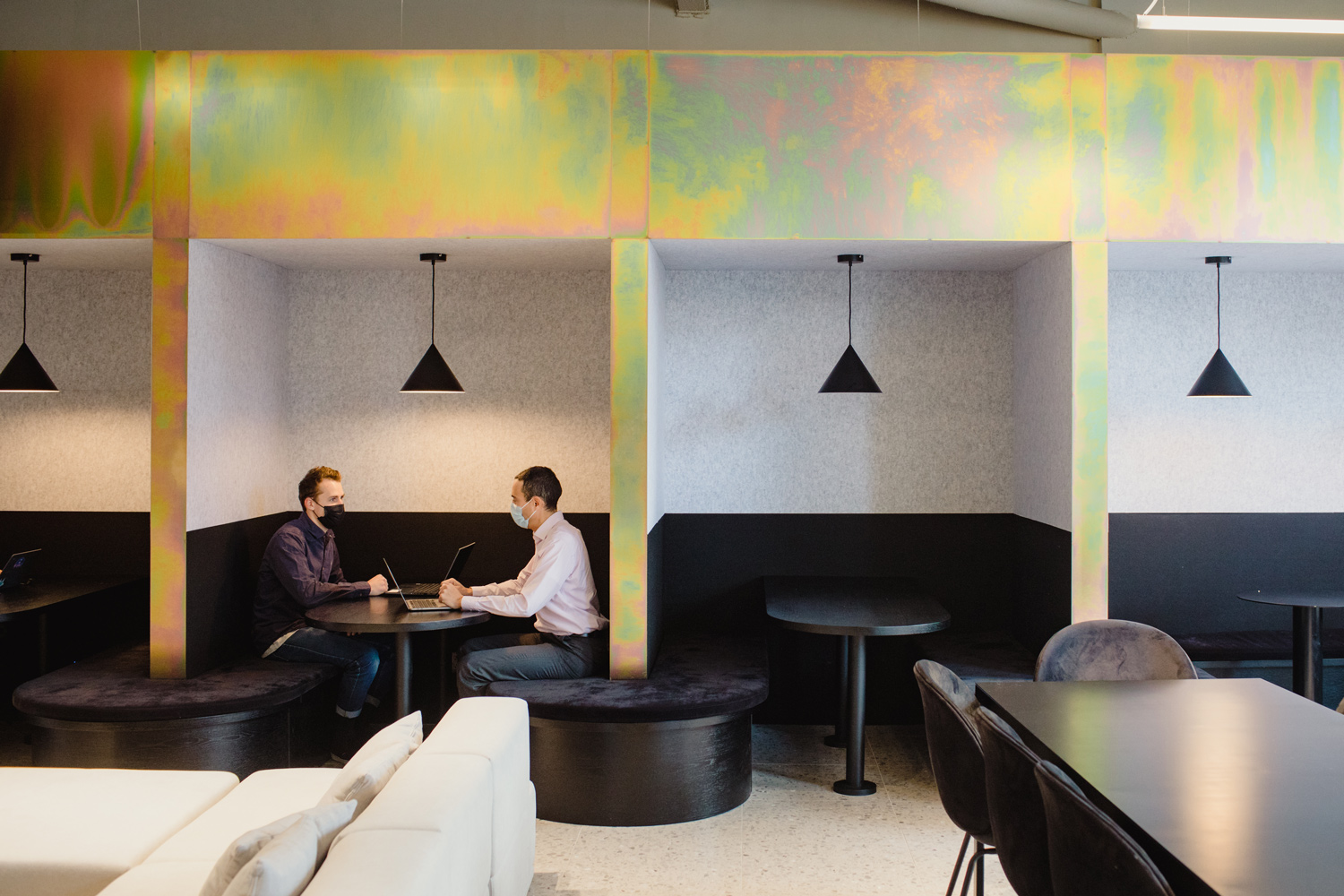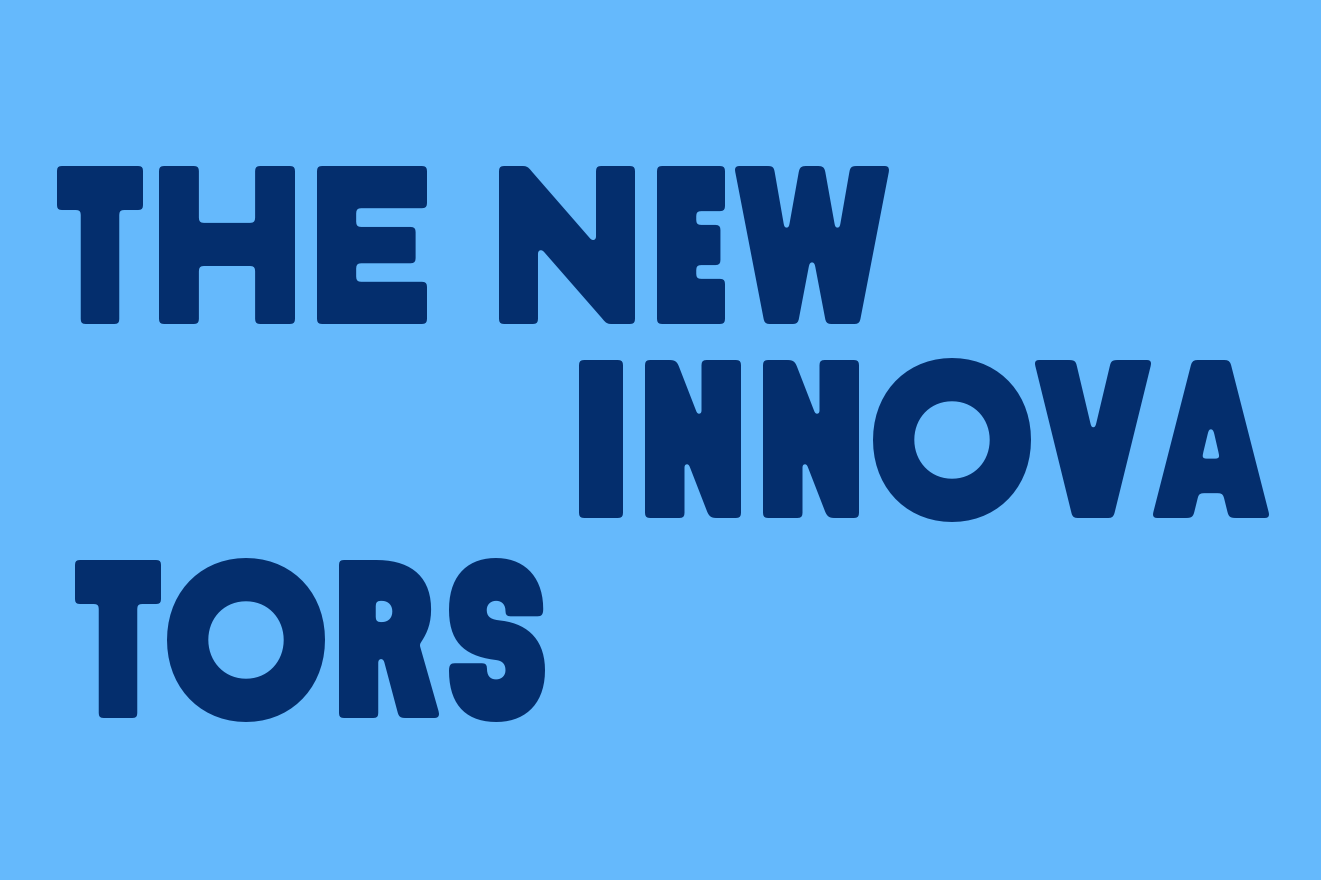How to Encourage Employees to Return to the Office

Intelliware is a software-development company based in Toronto that builds digital solutions and online platforms—apps and websites—for major institutions, including Canada’s banks. Prior to the pandemic, Intelliware had roughly 100 employees, 65 per cent of whom worked in the office every day. The rest worked off-site with clients. The company’s HQ is downtown near the entertainment district in a 120-year-old brick-and-beam building that was previously occupied by a jeweller and diamond cutter. Intelliware leases three floors, including the basement.
To make coming to the office attractive, Intelliware kept a fully stocked snack station with chips, chocolate and fruit, served a hot breakfast once a week, hosted after-work drinks monthly and arranged group activities, like going to the CN Tower, at least once every six weeks.
That all changed when the pandemic hit. Like countless other companies, Intelliware switched to remote work. Employees adapted seamlessly because the company was already doing a lot of its work online, using the Microsoft stack to stay in touch.
“We have a lot of engineers, who mostly do individual contributor work,” says Chris Ford, president of Intelliware. “Engineers are not known for being boisterous extroverts—they’re much happier working from home full-time.”
Fast-forward to the spring of 2022. A lot of workplaces were introducing return-to-office models, but Intelliware decided against mandatory in-person attendance. The company had maintained productivity with remote work, plus, the world had changed: Employees would have to incur the costs of things like child care, commuting and dry cleaning, all of which had been largely avoidable—or at least minimized—during the pandemic.
Staff never vocalized their disapproval of a return-to-office policy, but looking around at other companies, like the major banks, Ford and his HR team anticipated it wouldn’t be a good idea to make employees come back. “If you want to maintain a positive relationship with your staff, you’d better have a good reason for them to come in,” Ford says. “Employees should feel a sense of purpose coming to the office, whether it’s an opportunity to socialize with co-workers or work on a project that requires face-to-face interaction.”

In weekly memos and quarterly town hall meetings, Ford asked employees what would make it worthwhile for them to return to the office. A technical director named Nick Dyment stepped up. For years, it’s been known that Intelliware employees are musically inclined. A lot of them play instruments and attend shows after work. So, in the fall of 2022, Dyment suggested that the company rent musical instruments and put them in the basement, making use of a room that is otherwise used for client events. Dyment imagined having a space where—once a week, on Thursdays—employees could play music together.
Ford liked the idea. It served the purpose of allowing employees to have fun and connect with each other. By November, at a cost of roughly $800 a month to rent the instruments, Intelliware had filled the basement with a drum set, a bass guitar, a mixing board, two electric guitars and a few mics. All the instruments are set around a big Persian rug. The company also brought in lights that flash in different colours when they detect changes in sound frequency, making the basement feel like the site of a mini rock concert.
Related: Thinking About Launching a Business Newsletter? Here’s How Wealthsimple Did It
Nowadays, about eight employees come into the Intelliware offices on the average workday. But on Thursdays, upwards of 25 employees will show up for office hours. Then at 5 p.m., anywhere from five to 15 of them will descend to the basement to rock out. Everyone is welcome. Staff can play solo, karaoke-style or with a crew. Some employees jump from instrument to instrument, showing off their talent, while others prefer to keep it simple, playing the triangle, singing along or just sitting back and relaxing. The whole group might go out for dinner afterward.
Ford, for his part, decided to start a band with a couple of his co-workers—a software engineer and a technical director—and they come into the office every weekend to practise. The band doesn’t have a name yet, but their goal is to play a few songs at this year’s company holiday party.
“We’ve got a playlist, which includes ‘Seven Nation Army’ by The White Stripes and ‘Free Fallin’’ by Tom Petty,” Ford says. “We’re experimenting to find our vibe.”
Related: How to Pitch Your Start-up to Investors
Ford says other companies should adopt a similar approach, letting employees make suggestions and creating purpose-driven experiences that make them want to come back to the office rather than feel forced. “We have lots of channels where team members can make their voices heard, including regular catch-ups and town hall meetings,” Ford says. “Workplaces should create an environment where staff feel comfortable speaking up.”
And if you’re a small to mid-size company that’s capable of making changes on the fly, Ford says it’s a real competitive advantage. “We compete with the banks for talent,” he says. “If the banks are instituting a compulsory return to work, we as a medium-size company can offer something much richer, much more meaningful.”
This article appears in print in the Spring 2023 issue of Canadian Business magazine. Buy the issue for $7.99 or better yet, subscribe to the quarterly print magazine for just $40 a year.










